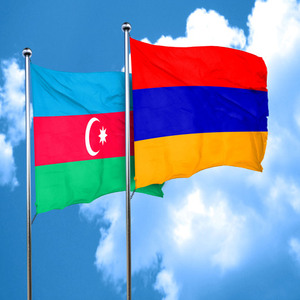
On 22 February 2023, the International Court of Justice (the “ICJ” or the “Court”) ruled on the most recent provisional measures applications by both the Republic of Armenia (“Armenia”) and the Republic of Azerbaijan (“Azerbaijan”) in the cases Application of the International Convention on the Elimination of All Forms of Racial Discrimination (Armenia v. Azerbaijan) and (Azerbaijan v. Armenia). The ICJ granted one of Armenia’s three requests, ordering Azerbaijan to ensure the free movement of persons, vehicles, and goods across the Lachin Corridor, which connects Armenia with the Nagorno-Karabakh region. The Court dismissed both of Azerbaijan’s requests.
On 16 September 2021, Armenia instituted proceedings against Azerbaijan under the 1965 International Convention on the Elimination of All Forms of Racial Discrimination (the “CERD”), accompanied by a request for provisional measures. Shortly afterwards, on 23 September 2021, Azerbaijan commenced proceedings against Armenia under the CERD, also requesting provisional measures. On 7 December 2021, the Court ruled on both provisional measures applications, ordering, inter alia, that Azerbaijan (i) protect from bodily harm all persons captured in relation to the 2020 armed conflict in Nagorno-Karabakh; (ii) prevent the incitement of racial hatred and discrimination against persons of Armenian national or ethnic origin; and (iii) prevent and punish acts of vandalism affecting Armenian cultural heritage. Also, the Court ordered Armenia to prevent the incitement of racial hatred targeted against persons of Azerbaijani national or ethnic origin.
In September 2022, Armenia requested modification the provisional measures ordered against Azerbaijan, to include persons captured from any armed conflict between the parties since 2020, including hostilities that had erupted in September 2022. In October 2022, the ICJ rejected Armenia’s request, ruling that the recent hostilities had not warranted a change in circumstances underlying the Court’s 7 December 2021 Order.
On 28 December 2022, Armenia requested a second set of provisional measures, which were (i) that Azerbaijan cease its orchestration and support of alleged “protests” blocking free, uninterrupted movement along the Lachin Corridor in both directions; (ii) that Azerbaijan ensure free, uninterrupted movement of all persons, vehicles, and cargo along the Lachin Corridor in both directions; and (iii) that Azerbaijan restore, and refrain from disrupting or impeding, the provision of natural gas and other utilities to Nagorno-Karabakh.
The ICJ granted Armenia’s second request. The Court found a “link” between that measure and (at least) some rights asserted by Armenia, which were “plausible” under Article 2 of the CERD (prohibition of racial discrimination), Article 5(d) (equality of civil rights) and Article 5(e) (equality of economic, social and cultural rights). Next, the Court found there was “urgency, in the sense that there is a real and imminent risk that irreparable prejudice will be caused to the rights claimed” before a final decision. Specifically, disruption on the Lachin Corridor had impeded the transfer of persons of Armenian national or ethnic origin, hospitalised in Nagorno-Karabakh, to urgent care medical facilities in Armenia. Hindrances in importing essential goods to Nagorno-Karabakh had also caused shortages of food, medicine and other life-saving medical supplies. The Court rejected the first request, on grounds that it was “not warranted”, while for the third request, Armenia had not adduced “sufficient evidence” to show Azerbaijan had been “disrupting the supply of natural gas and other utilities to the residents of Nagorno-Karabakh”.
On 4 January 2023, Azerbaijan requested provisional measures ordering (i) that Armenia take steps to enable Azerbaijan to remove mines from the Lachin and Kalbajar Districts (and other formerly occupied districts of Azerbaijan), which included providing information on “landmines, booby traps and other explosive devices in these areas” so internally displaced Azerbaijani persons could return to their homes; and (ii) that Armenia cease and desist from planting, sponsoring or supporting the planting of “landmines and booby traps” in these areas. The ICJ dismissed both of Azerbaijan’s requests. Reciting its prior ruling of 7 December 2021, the Court did not consider that the CERD “plausibly imposes any obligation on Armenia to take measures to enable Azerbaijan to undertake demining or to cease and desist from planting landmines”. Also, Azerbaijan had not adduced evidence showing that Armenia’s alleged conduct with respect to landmines had “‘the purpose or effect of nullifying or impairing the recognition, enjoyment or exercise, on an equal footing’, of rights of persons of Azerbaijani national or ethnic origin”.
